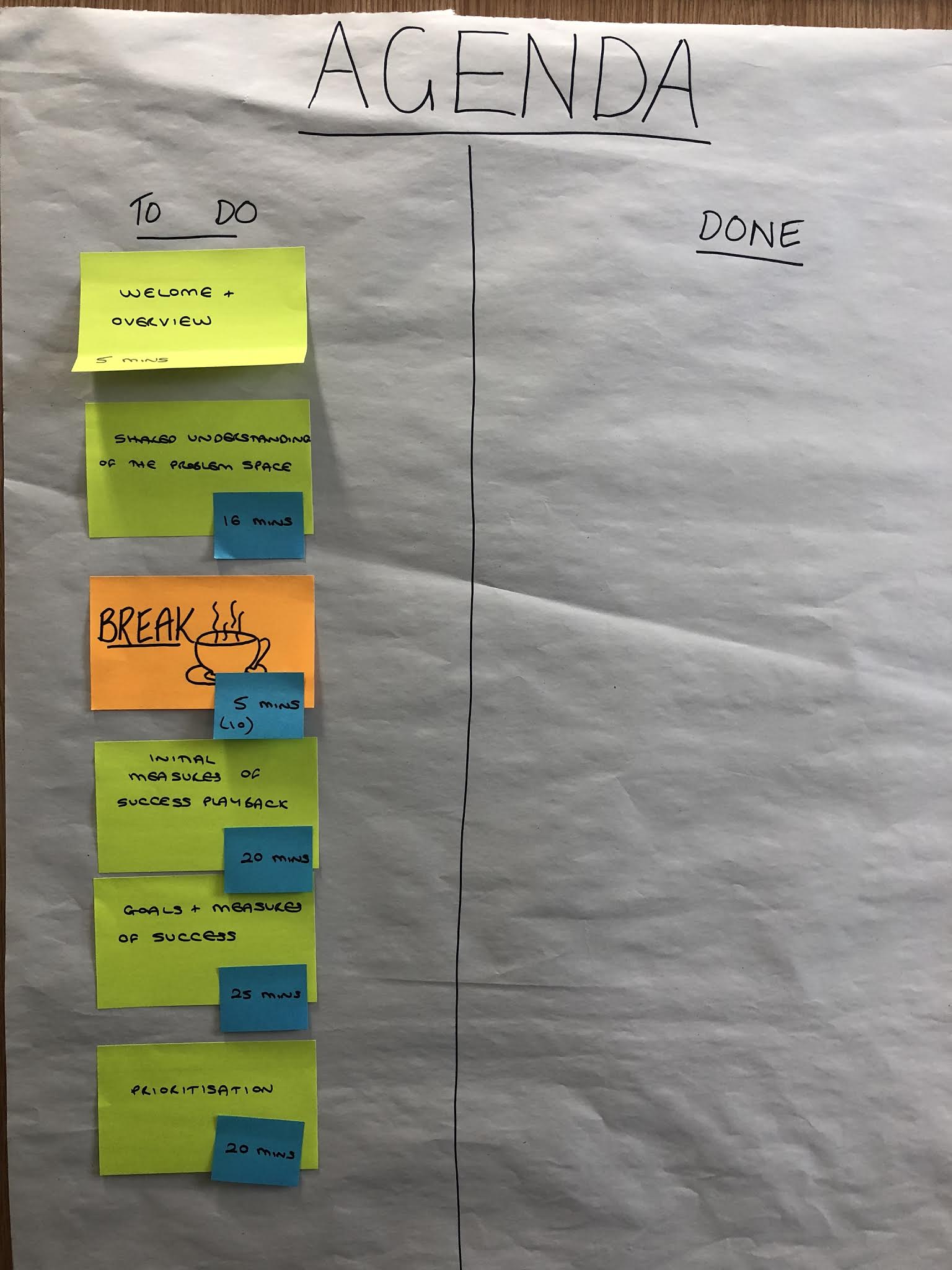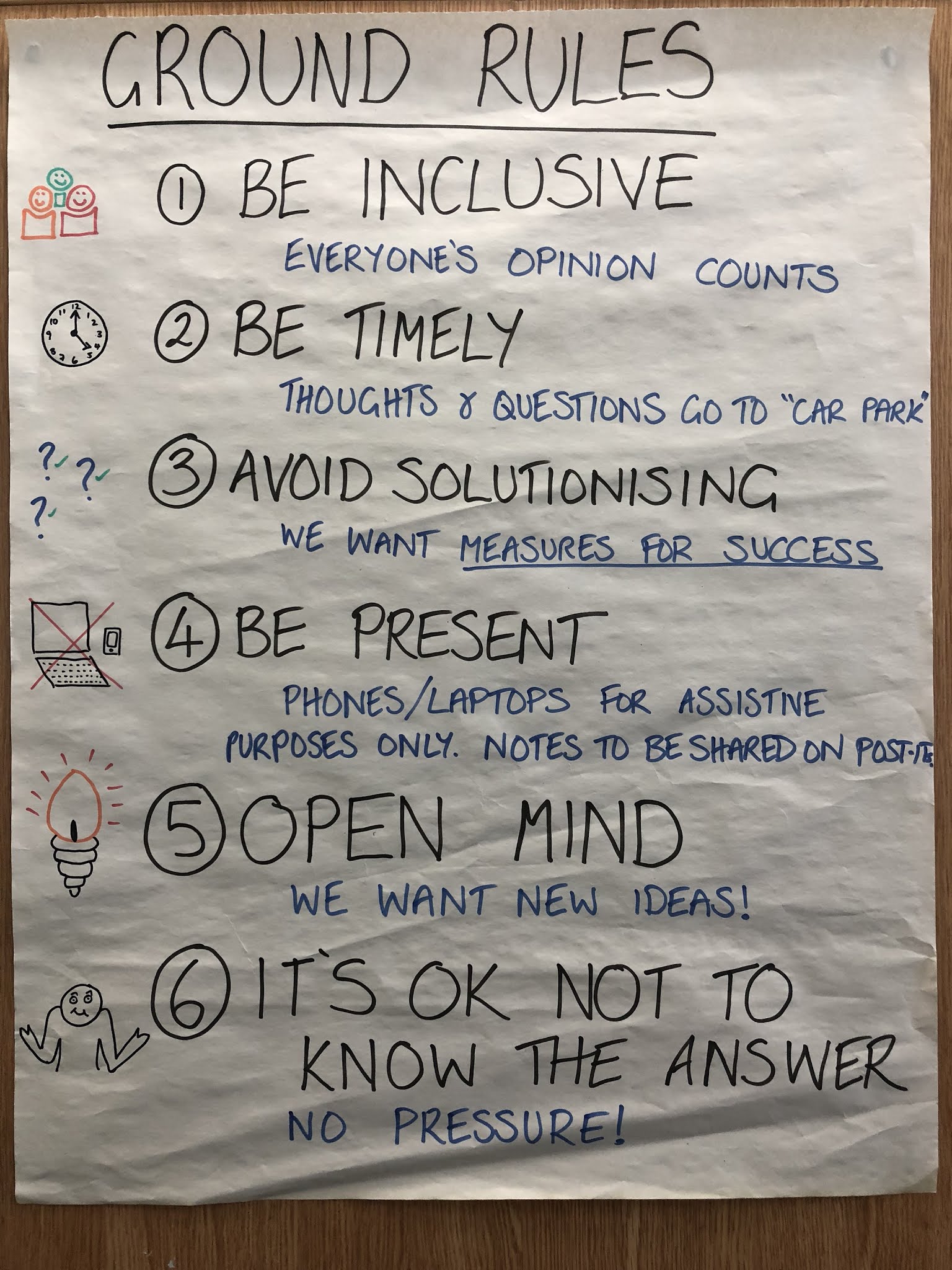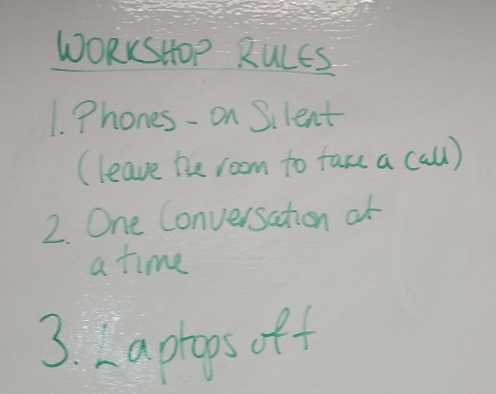Workshop Techniques
Contents of this page:
- Misc
- Useful Workshop Tips
- Establish ground rules and agenda
- Under promise and over deliver
- Avoid fidgeting
- Vary your delivery methods
- Use repetition
- Have a timetable and stick to it
- Be flexible
- Learning Aims and Objectives
- Kolb’s Four phases
- TTT - Tell, Tell, Tell again
- WWW - Why, Who, What
- Retros
- Parking lot
- Getting attention when you feel you’re losing people
- Teachable moments
- Beware roleplay
- Useful Workshop Techniques
- The perfection game
Misc
- See also Workshop types
- workshops tag in private Evernote
- I’m also planning a lot of teaching / training content in the Teaching section of this site.
- Guide to virtual workshops
- See also Remote Workshops)
Useful Workshop Tips
Use energisers
Use energisers to warm people up and get them intreracting with each other
Get your learners in the zone
- Start with an activity
- Acknowledge external distractions
- Discuss what you’re going to be doing and why
- Be excited and positive
Establish ground rules and agenda
Examples from a “Measures of Success” workshop:



Under promise and over deliver
Avoid fidgeting
Hold something in your hand to help with this.
Vary your delivery methods
- Remember this:
- What I hear, I often forget
- What I hear and see, I remember somewhat
- What I hear, see, question and discuss, I understand
- What I hear, see, discuss and do, I acquire knowedge of
- What I teach to another, I master
- No more than 30 minutes of lecturing in any one session!
- Socratic questioning
- “What is a server?” etc - get participants to answer the questions, to tease out knowledge and misunderstanding.
- Discussion
- Demo
- Practical
- Group work
- Sit down
- Stand up
- Write on board
- Brainstorm (see below)
- Visual aids
Use repetition
- Spaced memory repetition
- Be aware of the forgetting curve
- This is a general principle and is not just applicable to flashcards
- The more things are repeated, the more likely people will remember them
Have a timetable and stick to it
- Boxed time slots that do not overrun
- Regular breaks
- Keep a spare activity in case you go faster than expected - eg “What would you do in this scenario?” - group work.
Be flexible
Aim to facilitate learning rather than impart knowledge. Be learner-centred, not trainer-centred.
Learning Aims and Objectives
- Make sure you have already defined scope and prerequisites before your attendees even arrive.
- At the start: What are we going to learn? “By the end of this, we will be able to…”
- Are you trying to teach knowledge, skills or attitude?
- What do you know already? What do you NOT know?
- You can get people to participate by sharing what they hope to achieve and what they already know.
- Does anyone have anything they would like to learn that’s not included in the stated objectives? How many others woulkd also like to learn that?
- This can be a brainstorming session
- At the end: What did we learn? Did we achieve our objectives?
Kolb’s Four phases
- experience, reflection, abstraction, experimentation
- make sure learners have opportunities to do all of these.
- in order, these give a good structure for a course.
TTT - Tell, Tell, Tell again
Tell them what you’re going to tell them, tell them the stuff, then tell them what you’ve told them.
WWW - Why, Who, What
Why are people attending? Who are they? What content will you deliver (also what will you drop if you run out of time / technical difficulties)?
Retros
Try to have a retro at the end, you can use FunRetro and have columns Keep Doing, Stop Doing, Should be Doing. Give people a chance to dot vote and actually discuss the cards they have added.
Parking lot
- aka Question Park
Getting attention when you feel you’re losing people
- Do something you know is wrong / challenging as a way of eliciting participation / engagement
- Move across the room and go silent for a few seconds
- Shrinking violets: ask questions of a couple others first before asking them
- Troublemakers: “YOu don’t seem to be getitng much out of this. Is there something we can do to help you?” Be nice to them!
Teachable moments
Something comes up unanticipated, but opportunity to learn / teach: “Gather round everyone, X has just asked a really good qu” - ask X to repeat the qu, then demonstrate the answer on the fly.
Beware roleplay
A lot of people hate it. Then again… a trainer I knew, during a powercut, got away with getting people to wear silly hats and play the parts of Unix system components.
Useful Workshop Techniques
Many other brilliant ideas for how to collaborate and brainstorm effectively are available here at Liberating Structures.
The perfection game
- A way of providing feedback
- Not actually one of the Liberating Structures (as I first thought) but uses the same principles.
- One by one, everyone…
- Gives a score of 1 to 5 according to the value of the thing being evaluated
- Says what they like about it
- Says what would be needed to make it perfect
- No negative comments allowed
- More here
Distributed learning
Split people into groups and get each group to research answers to questions within a particular subject area. Then each group comes back and presents what they’ve learnt to the wider session. Each group learns more on their individual topic, all groups learn via the presentations at the end.
Brainstorming
- What are the key elements of [insert thing here]?
- In groups on postits
- Or in main session, people shouting out
- Make a list together as a group, then choose an item and expand. You can insert your own items if there are things you want to cover.
Scenarios
“What would you do in this scenario?” - group work.
1-2-4-All
Read all about it here.